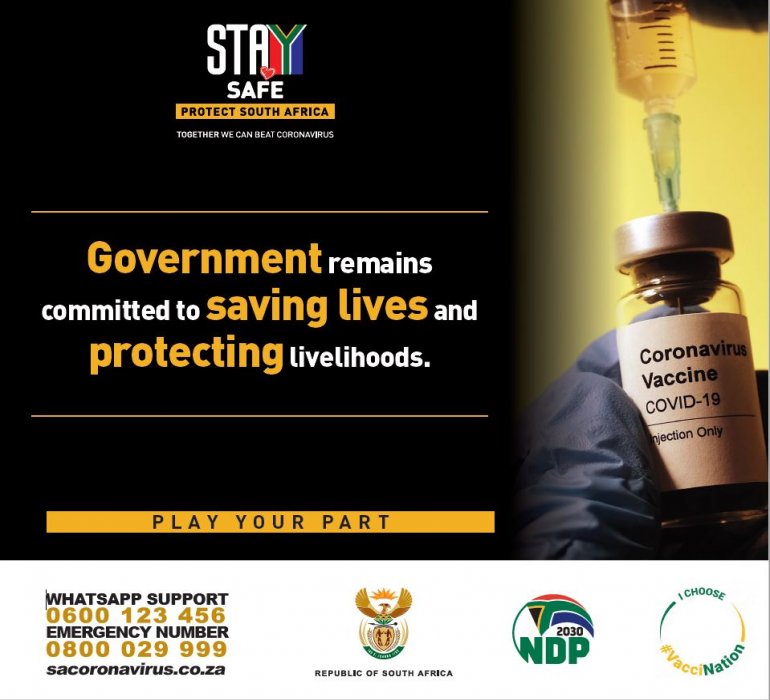
On Monday 22 February 2021, the first group of healthcare workers lined-up to receive jabs of the Johnson & Johnson (J&J) vaccine that arrived in the country last Tuesday. The jabs form part of the country’s first phase of the Vaccination Rollout Programme that signifies a key milestone in the country’s fight against the Covid-19 pandemic.
While government aims to achieve population immunity to save lives and protect livelihoods through this vaccination programme, it also faces challenges of false and potentially harmful information related to the vaccine. Due to this, the Department of Health has released the below specifics to debunk the myths and disband fears about the J&J vaccine:
How does the vaccine protect you against Covid-19?
When injected, the vaccine trains your immune system to fight the virus that causes Covid-19. The vaccine does not contain the Coronavirus and will not give you Covid-19. Some mild side effects including tenderness at the injection site, feeling unwell, feverish and a headache for a few days are positive signs that the body is mounting an immune response to the Coronavirus. When you encounter real Coronavirus particles in future, your immune system will be able to disarm the virus so that you either do not fall ill at all or if you do, the symptoms are mild and your chances of being hospitalised or dying are much lower.
Why is the J&J vaccine a good first choice for the National Vaccination Programme?
It was tested in a large trial of almost 44 000 people from four continents, of whom 7 000 participants came from South Africa. The study also provided a good picture of how the vaccine works against the new 501Y.V2 variant, which is dominant in South Africa and currently responsible for around nine in 10 of all Covid-19 infections detected during the second wave. The South African trial showed that while the J&J vaccine is not going to prevent mild symptoms, it provides 57% protection against moderate-severe disease, 85% protection against severe disease and 100% protection against death.
How is the vaccine given and when does protection start?
The vaccine is given as a single dose into the upper arm. Protection starts around 10 to 14 days after vaccination and even as early as seven days for severe disease and can also rise to good levels around a month after vaccination.
How is the rollout going to work?
South Africa has secured 500 000 doses of the vaccine which is enough to vaccinate half a million health workers. The first batch of 80 000 doses arrived on 16 February and further deliveries will follow every two weeks. Vaccines will be available at 17 hospitals throughout the country where teams of researchers and vaccinators will work together to deliver the vaccine to health workers up to 10 hours a day, seven days a week.
Remember, it remains important to continue to use masks, practise social distancing and good hand hygiene even after you are vaccinated.
Related topics:
- Johnson & Johnson rollouts begins
